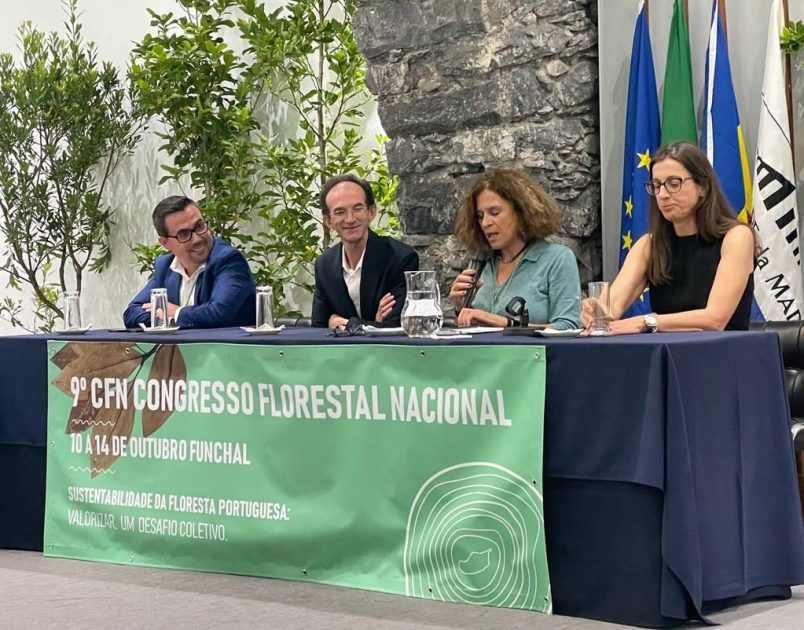Following the events promoted in the scope of the mobilising project rePLANt, the 9th National Forestry Congress, which took place from 10 to 14 October in Funchal, hosted the rePLANt symposium on 12 October, in which the results of the project’s different lines of action were presented, some of which disruptive in the forestry context.
This symposium, organised by The Navigator Company, leader of the consortium, and ForestWISE, as scientific technical coordinator, provided a forum to discuss, innovative concepts and ideas about integrated forest and fire management.
One of the topics presented was about new technology in logging and forestry operations. The Navigator Company talked about innovations which make it possible to meet the project’s aims, in particular increasing operator safety and cutting labour costs. To achieve this, it is necessary to implement the digital transition in forestry operations, namely through new forestry implements which incorporate digital tools.
In line with the innovations in forestry machines, is the concept of Forest 4.0, which requires a new era in operations through innovative and facilitating actions, such as the revision of exploitation plans, namely the forecasts of wood flows throughout the chain and the allocation of equipment to operations, resulting in a decrease in logistics costs and an increase in the efficiency of machine operators. This activity is being developed by ForestWISE, INESC TEC, The Navigator Company and Trigger Systems.
Innovations aren’t enough when it comes to get to know the forest. There are new technologies that allow a forest inventory to be carried out using smartphone applications, reducing the time and costs required, compared to the traditional method. Thus, ForestWISE shared the main conclusions of tests carried out in pine and eucalyptus stands using three applications.
In addition to identify the type of tree in a given area, it is now possible to quantify the biomass stock in tree and shrub strata. To this end, the results of the tests carried out using LiDAR technology and the use of drones were presented, allowing the collection of a set of relevant forest information to support decision-making. Labelec and UTAD presented the preliminary results of work developed in stands of maritime pine, eucalyptus and cork oak.
Regarding electricity lines, E-REDES provided information about the activity coordinated by them and related to the optimisation of protection zones and fuel management strips, through LiDAR, allowing greater defence and protection of the forest and electricity infrastructures, the safety of the population living in forest areas and the guarantee of quality service in the electricity lines.
Also, in relation to risk management, REN, University of Coimbra and whereness presented a service for simulating the spread of fire allowing the analyse of its evolution in real time over the long-term. This decision support system for the management and resilience of REN’s gas and electricity infrastructure will be used in case of fire and enables prevention, alert and action to be taken in coordination with Civil Protection.
The rePLANt symposium at the National Forestry Congress ended with a reflection about the consequences of the legal frameworks for biomass management, in the context of the Integrated Management System for Rural Fires in Portugal. In this panel, UTAD, E-REDES and REN, with ISA moderation, analysed the challenges and opportunities arising from compliance with legislation for vegetation management when, in particular, applied to fuel management strips. The group of experts referred to possible alternatives and strategies that, in addition to fulfilling the primary objective of the strips (risk reduction), can promote biodiversity, reduce erosion processes and be more visually appealing

